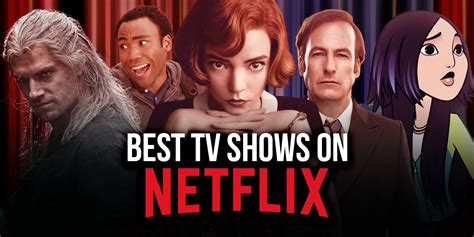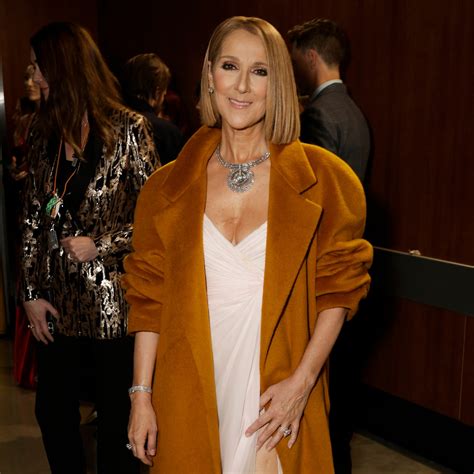
Social media is offering a glimpse behind the velvet ropes of Las Vegas, with users sharing their surprising and sometimes shocking experiences from Sin City under the hashtag #WhatHappenedInVegasDidntStayInVegas. The trend reveals a range of anecdotes, from unexpected celebrity encounters to bizarre and humorous situations, challenging the long-held adage of Vegas discretion.
Las Vegas, known for its casinos, nightlife, and entertainment, has long operated under the unofficial motto, “What happens in Vegas, stays in Vegas.” This code of secrecy has contributed to the city’s allure as a place where individuals can indulge in behaviors they might otherwise avoid. However, a burgeoning social media trend is challenging this tradition, with people using platforms like TikTok and X (formerly Twitter) to share their Sin City stories, often under the hashtag #WhatHappenedInVegasDidntStayInVegas.
The trend showcases a wide spectrum of experiences. Some users recount chance encounters with celebrities in unexpected settings, while others detail humorous or outlandish situations they found themselves in. These stories range from lighthearted anecdotes to more eyebrow-raising revelations, offering a diverse and often unfiltered look at the realities of Vegas life.
One user, as highlighted in the Yahoo! Entertainment article, shared a story about a celebrity sighting, stating, “I saw Drake at a roulette table, and he gave me a high five after I won.” Another recounted finding a stray dog in their hotel room, leading to a comical series of events involving hotel staff and animal control. These are just glimpses into the myriad stories being shared online.
The rise of this trend raises questions about the future of Vegas’s secretive culture. As social media becomes an increasingly pervasive force in modern life, the ability to maintain privacy, even in a place known for its discretion, is being tested. The implications of this shift are complex, affecting not only the individuals who visit Vegas but also the businesses and the overall image of the city.
“It’s fascinating to see how social media is reshaping the narrative around Las Vegas,” says social media analyst Maria Hernandez. “The traditional idea of Vegas as a place where anything goes, without consequences, is being challenged by the transparency that platforms like TikTok and X provide.”
For businesses in Las Vegas, this trend presents both challenges and opportunities. On the one hand, the exposure of potentially unflattering stories could damage reputations. On the other hand, the viral nature of social media could also be harnessed to promote positive experiences and attract new visitors.
The trend also reflects a broader cultural shift towards sharing personal experiences online. In an era of oversharing, the impulse to document and broadcast even the most private moments has become commonplace. This has significant implications for privacy, reputation management, and the way we perceive public spaces.
As more people share their Vegas stories online, the line between the public and private spheres continues to blur. The #WhatHappenedInVegasDidntStayInVegas trend serves as a reminder of the power of social media to expose, entertain, and ultimately reshape the world around us. It also prompts a broader discussion about the ethics of sharing personal information and the consequences of living in an increasingly transparent society.
The article in Yahoo! Entertainment also touches on the surprise element involved in many of these shared experiences. Vegas is a place where the unexpected can happen, and social media is now providing a platform for these moments to be broadcast to a global audience. The trend is likely to continue as long as people keep visiting Vegas and sharing their stories online.
Detailed Analysis and Expanded Context:
The “What Happens in Vegas Stays in Vegas” motto has been a cornerstone of the city’s identity for decades. It’s more than just a catchy phrase; it’s a cultural understanding that has shaped the city’s reputation as a place of uninhibited fun and freedom. However, this unwritten rule is now facing a significant challenge from the pervasive influence of social media.
The appeal of Las Vegas has always been tied to its ability to offer experiences that are outside the norm. People come to Vegas to escape their everyday lives, to gamble, to party, and to indulge in activities they might not normally consider. The understanding that these activities would remain private has been a key part of the city’s allure. This sense of privacy has allowed visitors to feel comfortable taking risks and letting loose, contributing to the city’s vibrant and often unpredictable atmosphere.
The rise of social media platforms like TikTok, Instagram, and X has fundamentally altered the landscape of privacy. These platforms have made it easier than ever for people to document and share their experiences with a global audience. The impulse to share, driven by the desire for likes, comments, and social validation, has become a powerful force, overriding traditional notions of discretion.
The #WhatHappenedInVegasDidntStayInVegas hashtag is a direct manifestation of this shift. It represents a collective decision to break the code of silence that has long defined Vegas culture. The stories shared under this hashtag range from the mundane to the outrageous, providing a diverse and often unfiltered look at the realities of Vegas life.
The implications of this trend are far-reaching. For individuals, it raises questions about privacy and reputation management. A photo or video shared online can have lasting consequences, potentially affecting personal relationships, career prospects, and social standing. For businesses, it presents both challenges and opportunities. Negative stories can damage reputations, while positive ones can attract new customers.
The city of Las Vegas itself faces a challenge in adapting to this new reality. The traditional marketing strategies that have relied on the promise of secrecy and freedom may need to be reevaluated. The city will need to find ways to balance its reputation as a place of uninhibited fun with the need to protect the privacy and reputations of its visitors.
The trend also highlights a broader cultural shift towards transparency. In an era of ubiquitous surveillance and constant connectivity, privacy is becoming increasingly elusive. The #WhatHappenedInVegasDidntStayInVegas hashtag is just one example of how social media is eroding the boundaries between the public and private spheres.
The psychological factors driving this trend are complex. For some, sharing their Vegas stories is a way to seek validation and attention. For others, it’s a way to connect with others who have had similar experiences. And for still others, it’s simply a way to document their travels and create lasting memories.
Whatever the motivation, the trend is having a significant impact on the culture of Las Vegas. The city is no longer a place where anything goes without consequences. The watchful eyes of social media are everywhere, and the promise of secrecy is becoming increasingly difficult to maintain.
The legal implications of this trend are also worth considering. While sharing personal experiences is generally protected by free speech laws, there are limits. Defamatory statements, invasions of privacy, and violations of copyright can all lead to legal action. It’s important for people to be aware of their rights and responsibilities when sharing information online.
The long-term effects of this trend on Las Vegas remain to be seen. It’s possible that the city will adapt and evolve, finding new ways to attract visitors while respecting their privacy. It’s also possible that the trend will lead to a decline in tourism as people become more wary of the risks of sharing their experiences online.
One potential outcome is that Vegas will focus more on offering experiences that are inherently shareable and positive. Instead of promoting the idea of uninhibited excess, the city could emphasize its world-class restaurants, shows, and attractions. This would allow visitors to enjoy themselves without feeling the pressure to engage in risky or embarrassing behavior.
Another possibility is that Vegas will become more proactive in managing its online reputation. The city could invest in social media monitoring tools and public relations campaigns to counter negative stories and promote positive ones. This would help to ensure that the city’s image remains positive and attractive to potential visitors.
Ultimately, the future of Vegas will depend on its ability to adapt to the changing social media landscape. The city will need to find a way to balance its traditional image with the realities of the digital age. The #WhatHappenedInVegasDidntStayInVegas hashtag is a wake-up call, reminding everyone that the old rules no longer apply.
The Yahoo! Entertainment article further highlights the diverse range of stories being shared. It mentions instances of people recounting unexpected encounters with celebrities, finding strange items in their hotel rooms, and witnessing bizarre events on the streets. These stories contribute to the narrative that Vegas is a place where anything can happen, but they also raise questions about the potential consequences of these experiences being shared online.
The article also touches on the ethical considerations involved in sharing these stories. While many people may find these anecdotes amusing or entertaining, others may feel that they are a violation of privacy or a breach of trust. It’s important for individuals to consider the potential impact of their actions before sharing information online.
Expert Opinions and Industry Perspectives:
Several experts have weighed in on the impact of social media on Las Vegas culture.
-
Maria Hernandez, Social Media Analyst: As mentioned earlier, Hernandez believes that social media is reshaping the narrative around Las Vegas, challenging the traditional idea of Vegas as a place where anything goes without consequences. She notes the transparency that platforms like TikTok and X provide, forcing a reevaluation of the city’s secretive culture.
-
Dr. Emily Carter, Professor of Sociology: Dr. Carter specializes in the study of social media and its impact on society. She argues that the #WhatHappenedInVegasDidntStayInVegas trend is a reflection of a broader cultural shift towards oversharing and a blurring of the lines between public and private life. “People are increasingly driven by the desire for social validation,” she says. “Sharing their Vegas stories online is a way to seek attention and connect with others who have had similar experiences.”
-
Robert Miller, Hospitality Consultant: Miller advises hotels and casinos on how to manage their online reputation. He believes that the trend presents both challenges and opportunities for businesses in Las Vegas. “On the one hand, negative stories can damage reputations and deter potential customers,” he says. “On the other hand, positive stories can go viral and attract new visitors. The key is to be proactive in monitoring social media and responding to feedback.”
-
Sarah Johnson, Attorney specializing in Privacy Law: Johnson emphasizes the legal implications of sharing personal information online. “While free speech is protected, there are limits,” she says. “Defamatory statements, invasions of privacy, and violations of copyright can all lead to legal action. People need to be aware of their rights and responsibilities when sharing information online, especially in a place like Vegas where inhibitions are often lowered.”
The Impact on Vegas Businesses:
The #WhatHappenedInVegasDidntStayInVegas trend has a direct impact on businesses in Las Vegas, particularly those in the hospitality and entertainment industries. Here’s how:
- Reputation Management: Businesses must actively monitor social media to identify and address negative reviews or stories. A single viral post can significantly impact their reputation and bottom line.
- Marketing Strategies: Traditional marketing strategies that relied on the promise of secrecy and freedom may need to be reevaluated. Businesses may need to focus on promoting positive experiences and building trust with customers.
- Customer Service: Providing excellent customer service is more important than ever. Customers are more likely to share their experiences online, both good and bad.
- Employee Training: Employees need to be trained on how to handle social media interactions and how to respond to customer complaints or concerns.
- Crisis Management: Businesses need to have a crisis management plan in place to deal with potential social media disasters.
Frequently Asked Questions (FAQ):
-
What is the #WhatHappenedInVegasDidntStayInVegas trend?
The #WhatHappenedInVegasDidntStayInVegas trend is a social media phenomenon where people share their personal experiences, often surprising or shocking, from their trips to Las Vegas. It challenges the long-held idea that what happens in Vegas remains private.
-
Why is this trend significant?
This trend is significant because it challenges the traditional culture of secrecy surrounding Las Vegas, where the motto “What happens in Vegas, stays in Vegas” has long been a defining characteristic. It also highlights the increasing influence of social media on privacy and reputation management.
-
What types of stories are being shared under this hashtag?
The stories range from encounters with celebrities and humorous anecdotes to more revealing or potentially embarrassing situations. They offer a diverse and unfiltered look at the realities of Vegas life. Examples include celebrity sightings at casinos, finding unusual items in hotel rooms, and witnessing bizarre street events.
-
How does this trend affect Las Vegas businesses?
The trend impacts businesses in Las Vegas by requiring them to actively manage their online reputation, adapt their marketing strategies, focus on customer service, and train employees to handle social media interactions. Negative stories can damage reputations, while positive ones can attract new customers.
-
What are the ethical and legal considerations of participating in this trend?
Ethically, individuals should consider the potential impact on privacy and trust before sharing personal information or stories online. Legally, there are limits to free speech, and defamatory statements, invasions of privacy, or violations of copyright can lead to legal action. It’s important to be aware of rights and responsibilities when sharing information online.
Mitigating the Risks of Oversharing:
While the allure of sharing experiences online is strong, individuals visiting Las Vegas can take steps to protect their privacy and mitigate the risks of oversharing:
-
Be mindful of your surroundings: Before taking photos or videos, consider who else might be in the frame and whether they would want to be shared online.
-
Adjust privacy settings: Review and adjust the privacy settings on your social media accounts to control who can see your posts.
-
Think before you post: Ask yourself whether the information you are about to share is something you would want your family, friends, or employer to see.
-
Respect others’ privacy: Avoid sharing information about others without their consent.
-
Be aware of the legal consequences: Understand the potential legal ramifications of sharing defamatory or privacy-invading content.
-
Use discretion: Exercise good judgment and avoid engaging in activities that you would not want to be made public.
-
Consider using a VPN: A Virtual Private Network (VPN) can help to protect your online privacy by encrypting your internet traffic and masking your IP address.
Conclusion:
The #WhatHappenedInVegasDidntStayInVegas trend is a sign of the times, reflecting the pervasive influence of social media on our lives and the erosion of traditional notions of privacy. It presents both challenges and opportunities for individuals, businesses, and the city of Las Vegas itself. As social media continues to evolve, it will be interesting to see how the relationship between Vegas and the online world continues to unfold. The city’s ability to adapt and innovate will be crucial to its long-term success in this new era of transparency. The future of Vegas, it seems, will be shaped not only by what happens there, but also by what is shared online. The age-old saying might need a serious update. Perhaps, “What happens in Vegas, might end up on TikTok.”









